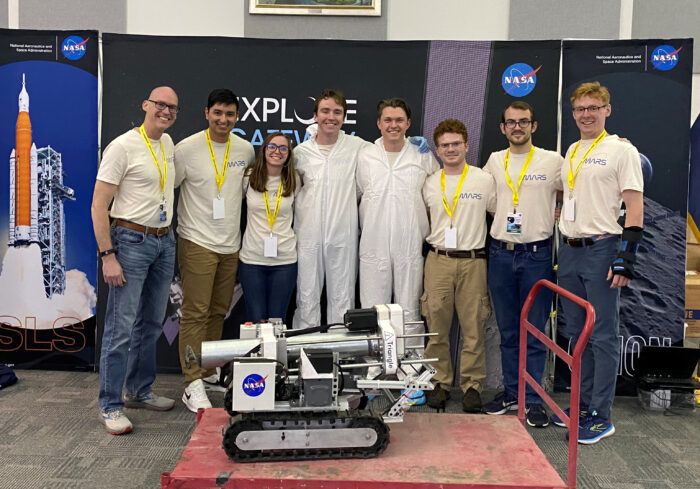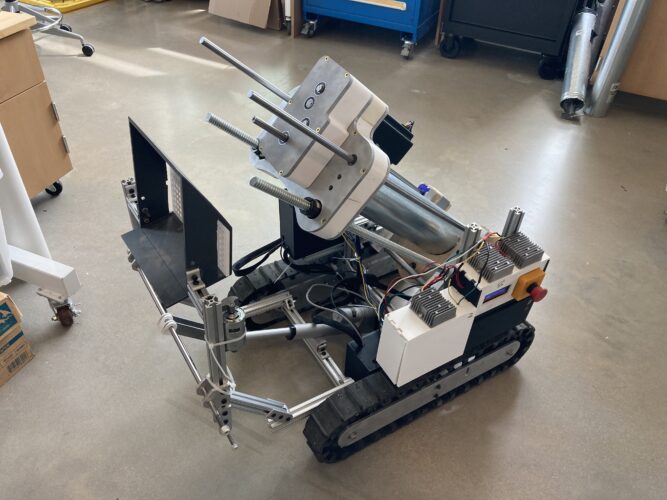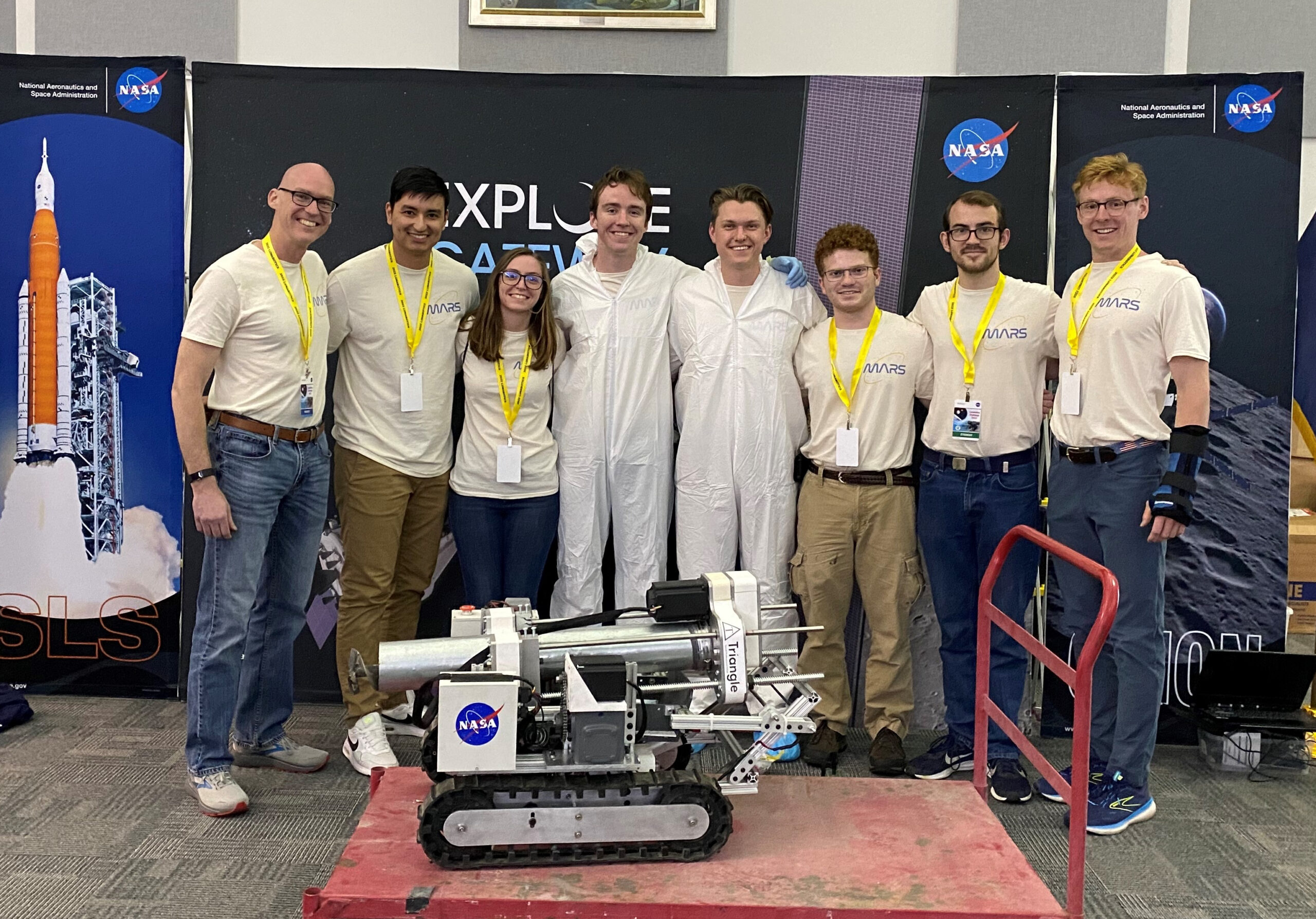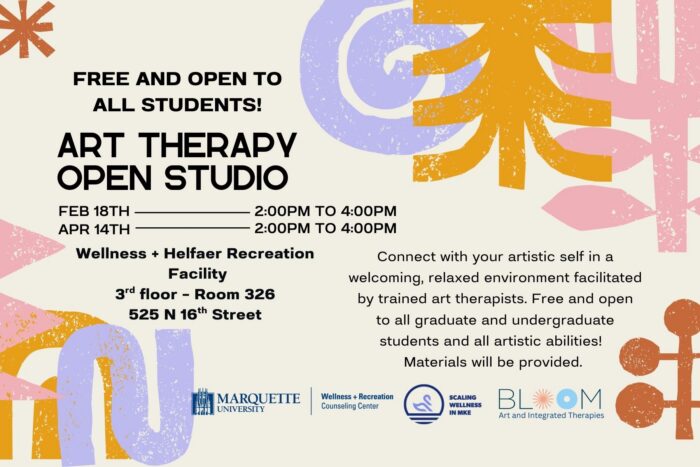
After a full year of work in their capstone engineering course, the MARS (Marquette Aerospace and Robotic Systems) senior design team traveled to Florida this May to test their lunar mining robot at NASA’s Kennedy Space Center.
As part of NASA’s LUNABOTICS Robotic Mining Competition, the team designed and built a robot to excavate lunar material in a simulated lunar surface arena alongside dozens of other engineering teams, including those from Purdue University, University of Alabama, Texas A&M, University of Illinois Urbana-Champaign, San Diego State University and Iowa State University, among others.
After NASA deliberated on scoring and outlined detailed feedback, the team received their final scores this July: they placed third out of 71 participating teams. The team was also awarded third place in the Best Systems Engineering Paper category.
Advised by Dr. Phil Voglewede, associate professor of mechanical engineering, the team comprised 10 Marquette engineers with majors including mechanical engineering, computer engineering and electrical engineering.
“I was extremely impressed with our students and how they handled themselves at NASA,” Voglewede says. “I’m thrilled with the outcome and inspired by what our students were able to accomplish this year.”
With their work culminating at the on-site competition, teams were assessed on the amount of icy regolith collected, written deliverables, a presentation to NASA and a public outreach project. In an arena consisting of an upper layer of simulated BP-1 and a lower layer of simulated icy regolith, robots were challenged to navigate to, dig up and deposit materials into a designated collection bin.

“Unlike many other capstone projects, we were required to actually manufacture and assemble a final product. Knowing that we had to go to NASA with a functioning robot was just the right amount of pressure to hold ourselves accountable to make sure the design was good and the work was done thoroughly,” Cheryl Hohl, Eng ’22, says. “We got to practice the technical and nontechnical skills of working closely with other engineers to design a complex system, being flexible and recovering from failure, and managing a big project given a short amount of time.”
With the entire team graduating just before the competition, the Opus College of Engineering is grateful for their dedication to this exciting project and for acting as incredible ambassadors of Marquette University. Their work also built off the experiences of previous Marquette teams, including the 2021 team who placed eighth overall during a virtual competition.
Hohl adds, “Our experience with this project will be extremely valuable in our careers and we are very grateful for the people and resources at Marquette and elsewhere that helped us make it happen!”
This fall, a new group of students will form the MARS senior design team to develop more solutions to meet NASA’s parameters.
The MARS team’s success is made possible by generous sponsors, including the Wisconsin Space Grant Consortium, Triangle Fraternity and Komatsu Mining Corp. The competition is a part of NASA’s Artemis Student Challenges, designed to engage and retain students in STEM fields by expanding opportunities for student research and design in the areas of science, technology, engineering, and math. The project provides a competitive environment to foster innovative ideas and solutions that potentially could be used on future NASA missions to the moon or even Mars.



